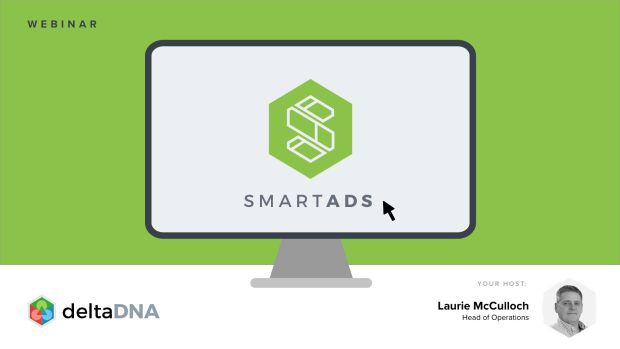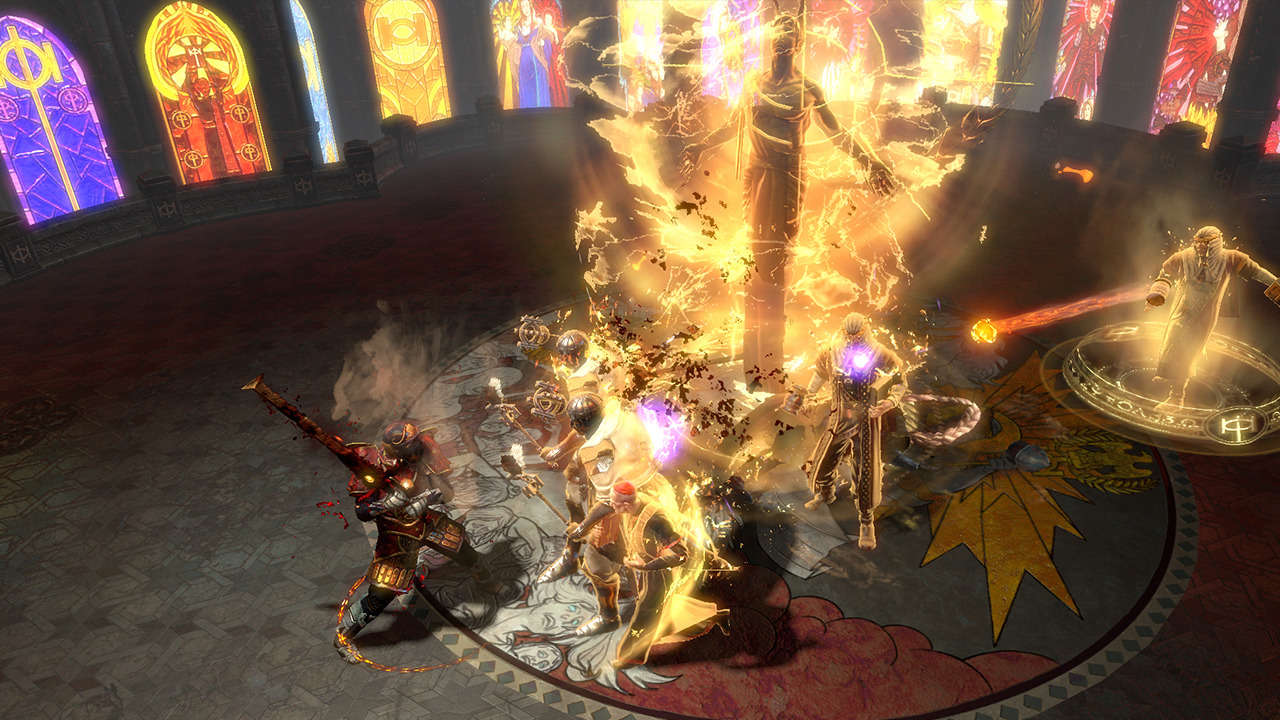
Today’s market isn’t just about providing the best quality game. It’s also about games as a service and retaining players over a longer period of time. Which is not all that bad given when certain people want to focus on a single game for years at a time. How do companies target such gamers and effectively monetize their engagement? That’s where platforms like deltaDNA come in.
DeltaDNA provides deep-data analytics and real-time player marketing for developers and publishers, thus leading to more engagement from players and increasing their investment in games. Such information is essential in the mobile and free to play space but how does deltaDNA do it? GamingBolt spoke to CEO and co-founder Mark Robinson about the same as well as his thoughts on today’s trends.
"We’ve worked with many developers including Square Enix Montreal, Bandai Namco, Wargaming, Sega and 505 Games. In terms of memorable experiences, its always great to see companies using the platform to generate killer results."
Can you tell us a bit about DeltaDNA and the services it provides to developers?
DeltaDNA is a deep-data and real-time player marketing platform which is used by game publishers and developers to help improve player engagement and lifetime values in games.
Our technology solution uses advanced data mining and predictive modeling to identify and segment different player behaviors. Through this insight, players can be targeted with real-time personalized in-game messages offering tailored experiences that increase retention and revenues.
In addition to marketing and analytics features, we also have SmartAds – our intelligent player-focused ad mediation platform which enables game makers to optimize their in-game advertising by harnessing the power of their player data. SmartAds also allows developers to see how their players interact with ads, something which just isn’t possible with a lot of ad solutions on the market.
Which developers have you worked with in the past? Any memorable experiences with regards to certain companies?
We’ve worked with many developers including Square Enix Montreal, Bandai Namco, Wargaming, Sega and 505 Games. In terms of memorable experiences, its always great to see companies using the platform to generate killer results.
For example, we recently worked with Fancy Cats, a F2P mobile match three game with a feline twist, developed by Genix Lab and published by All 4 Games, Channel 4’s publishing arm. Our platform enabled Fancy Cats to develop a targeted offers campaign around Black Friday, which resulted in a 600% increase in monetization.
What challenges have you faced in establishing the company? What progress have you seen in the two years since being established?
I think one of the biggest challenges has been around raising the profile of analytics. Five years ago developers were only using analytics dashboards to measure game performance. The use of analytics then evolved and developers would know that they had a problem with their game, but had no idea how to fix it. We’re now in the era of analytics 3.0, where advanced analytics solutions can be used to extract actionable insights and deliver real-time personalization at an individual player level.
As a result, we’ve had to do a lot of evangelizing about analytics and what can be achieved. We’ve also had to wait for the games industry to upskill around data science, with the expertise needed to understand which queries to run interpret the value of those insights.
This upskilling has gained real momentum in recent years, which has resulted in a much greater uptake of analytics platforms like deltaDNA, particularly in mobile games. As a result, we’re now able to work with the biggest names in the industry which seemed like a distant ambition when we first set-up the company.
"The unique benefit we offer publishers and developers lies in our exposure of data, which is of particular importance to games. With our platform, developers can see insights that would be hidden if you didn’t have that granularity of data."
What can you tell us about the various analytics you offer to game developers and publishers?
Our analytics tools fall within three main categories:
1. Measure
Our Measure dashboards help developers to understand engagement and retention, payment & monetization, players, missions and social engagement. They can also compare cohorts and filter dashboard views against unlimited user-defined deep data segments.
Our custom dashboards provide the KPIs for producers and developers need, all in one place. You can set-up and share dashboards for specified individuals or to cover aspects of your game’s performance. The platform contains approximately 60+ standard charts that are common to all games. They are populated from a set of common events that are added to each game when it is created. Measure charts can be filtered by event date ranges, player start date cohorts, platform, player acquisition channel and your own custom player segments.
2. Analyze
The Analyze section contains tools that run SQL analytics queries against the Vertica Data Warehouse to build custom charts and reports.
- Slice & Dice : Build custom tables and charts by dragging and dropping the event parameters and user metrics in to the query panels.
- Funnels : Build funnels to analyze user journeys through sequential stages.
- DataMining : Dig deeper in to your data with custom queries.
- Direct Access : Connect 3rd Party tools directly into your deltaDNA database.
- LTV Predictor : Optimize your marketing spend by understanding which campaigns deliver the most valuable players.
- Player Segmentation : Build highly targeted micro player segments to filter your analysis results and run targeted campaigns.
3. Engage
Engage is a highly flexible testing, targeting & real-time marketing tool-set that lets developers create sophisticated, automated multi-stage player campaigns that can target a player whilst they are playing with in-game messaging or after they have left the game with email and push notifications. You can use Engage to run A/B Tests and Campaigns to change the balance of game for defined player segments with real-time Targeting & Segmentation, or you can target lapsed players and tempt them back to the game with incentives and rewards.
Engage operates in two modes In Game and Out of Game. Each mode has two main interface components, Actions & Campaigns.
- In Game campaigns are triggered by the player, in real-time as they are playing your game
- Out of Game campaigns run on a timer. Each campaign is checked every 15 minutes to see if any new players have recently met the qualification criteria.
How are your tools benefiting game developers and publishers, compared to other similar offerings out there?
The unique benefit we offer publishers and developers lies in our exposure of data, which is of particular importance to games. With our platform, developers can see insights that would be hidden if you didn’t have that granularity of data. This granularity helps developers to effectively balance In-App Purchase (IAP) and advertising revenues while understanding how player behavior affects total monetization. We are the only tool out there that brings all of this into one place.
By unlocking their player data, developers can choose what experience players receive, based on how they play the game. This enables developers to tailor their monetization approach, and offer ads to those who respond to ads and then IAPs to those that prefer IAPs. The player life cycle in F2P games is so short and there’s really only so many chances to engage with a player. DeltaDNA helps makes those interactions count.
"We don’t see any real difference between how developers should tailor their approach on PC compared with console. What’s key is making sure the onboarding is right."
What are your thoughts on the current state of free to play gaming? What are some of the challenges it needs to overcome?
F2P gaming has come along way since its inception. Developers have gone from knowing very little about their players to knowing a lot. There’s also been a huge shift in focus from acquisition to retention. This has meant that developers now have a much greater impetus to improve the player experience, however, because they rarely have enough data to drive that change it can often be guess work, when they should be testing and revising any changes they make.
Right now, the industry is turning its attention to real-time personalization which is why we’re seeing the big studios taking notice and investing in big data as they can now realize the value. For the player, this can only be good news with player experiences set to become a whole lot more personal.
What are your thoughts on free to play audiences on PC versus consoles and should it influence how developers approach their games?
We don’t see any real difference between how developers should tailor their approach on PC compared with console. What’s key is making sure the onboarding is right.
You’ve also got to see how players engage with the game and make targeted interactions based on each individual player experience, and you need to make sure your monetization mechanics aren’t cannibalizing each other. You also need to ensure you’ve got a good core monetization loop, which is the same whether it’s a PC, mobile or console F2P game.
During your assessment of different companies, how do you often assist those who may excel in one category (engagement) but fall short in another? How long is the overall process?
We have a consultancy service we offer developers called Benchmark. During the Benchmark process, our game designers and monetization experts play that game to death to test and benchmark the game using our evidence-based research methodology. The fact that we have over 100m Monthly Active Users (MAU) on the platform, makes our methodology incredibly robust.
We compare each game against the best performing games in each of five crucial game design criteria: Monetization, Retention, Engagement, Social and Game Mechanics. The publisher then receives a detailed report which looks at every aspect of their game’s design, while offering practical advice based on real‐world examples in areas where their game falls short. This gives developers a clear understanding of the kind of KPIs they should be looking to achieve with a robust strategy on how to achieve them.
Benchmark is at its most valuable during the soft-launch phase, where the developer still has time to make wholesale changes and refine the monetization strategy. To Benchmark a game usually takes around 3-4 weeks.
"We’re seeing a trend these days where triple-A titles ship with micro-transactions but add new content via updates and events (see: Overwatch, Halo 5: Guardians)."
There’s often a debate on whether micro-transactions are good or bad, even if it’s not in a pay to win sense. What are your thoughts on the merits of micro-transactions, both in the free to play and commercial game space?
The thing is, you’re always going to offend some players whatever you do, which is why player segments are so important to ensure that only those who are receptive to micro-transactions are exposed to them.
In the commercial game space it’s the same. However, I think it all comes down to how reliant the developer is on the revenues from DLC. Where DLC revenues are vital, then I think micro-transactions force developers to create better player experiences, with more personalized targeting.
What can you tell us about this form of player retention and how it compares to retention in F2Ps with micro-transactions?
We’re seeing a trend these days where triple-A titles ship with micro-transactions but add new content via updates and events (see: Overwatch, Halo 5: Guardians). When talking to premium game makers they often haven’t yet a high regard for the use of data in their games.
Therefore, if this trend is going to prevail, premium developers are going to need a mindset change around what happens in their game before the option to purchase DLC happens, otherwise they can’t be sure that players reach that point to make the transaction.
This is in stark contrast to mobile F2P games, where its possible to completely personalize the player experience so that IAPs are only show to the right players at the right time.
What are your thoughts on the current console space with regards to hardware, especially with mid-generation upgrades like the PS4 Pro and Project Xbox Scorpio?
From a F2P perspective, upgraded higher powered consoles can only be a good thing because we know that the better the hardware the better the conversion rate and monetization. This is a trend we’ve particularly noticed in mobile phones, as they have evolved.
What are DeltaDNA’s future plans? How will you be expanding your services in the future?
The big focus for us moving forward is going to be around our SmartAds platform. Currently, very few developers have a clue what they’re doing they’re doing around ad mediation and IAPs, so we’re going to be evangelizing again around SmartAds and its ability to deliver a unified experience to optimize engagement in the game.
In addition, we’re also looking to build more embedded intelligence into the platform to provide more auto-generated segments, predictive models and default messages to really help developers execute best practice built up from our years of experience.


















